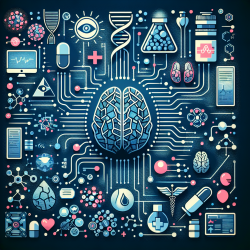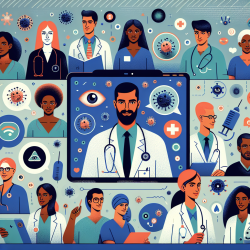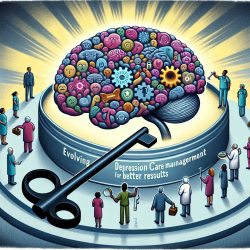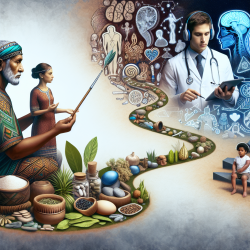Introduction
In the rapidly evolving landscape of healthcare, artificial intelligence (AI) is becoming a cornerstone for precision medicine, particularly in cancer genomics. The research article "Translating cancer genomics into precision medicine with artificial intelligence: applications, challenges and future perspectives" highlights the transformative potential of AI in healthcare. This blog aims to guide practitioners on how to harness AI to improve their skills and outcomes in precision medicine.
AI in Precision Medicine: The Basics
AI encompasses various technologies such as machine learning, deep learning, and natural language processing (NLP) that facilitate tasks requiring human intelligence. In precision medicine, AI helps in analyzing vast amounts of genomic data to make informed clinical decisions. By leveraging patterns in data, AI aids in faster and more accurate decision-making, which is crucial in tailoring treatments to individual patients.
Applications of AI in Cancer Genomics
The integration of AI in cancer genomics is revolutionizing how we approach cancer treatment. Here are some key applications:
- Variant Calling: AI improves the accuracy of identifying genetic variants, which is crucial for understanding tumor profiles and tailoring treatments.
- Liquid Biopsy: AI enhances the sensitivity of detecting cancer markers in non-invasive samples, aiding in early diagnosis and monitoring.
- Gene Expression Analysis: Machine learning models analyze gene expression data to predict cancer subtypes and patient prognosis, enabling personalized treatment strategies.
Challenges and Considerations
While AI holds great promise, there are challenges to its adoption in healthcare:
- Data Integration: The vast amount of genomic data requires robust integration frameworks to ensure meaningful insights.
- Transparency and Reproducibility: AI models must be transparent and reproducible to gain trust and ensure consistent results across different settings.
- Patient and Physician Education: Both patients and healthcare providers need to be educated about AI's role in healthcare to facilitate its adoption and maximize its benefits.
Future Perspectives
AI is set to drive significant advancements in precision medicine over the next few years. Practitioners should stay informed about the latest developments and consider participating in research and training to enhance their skills. By embracing AI, healthcare providers can improve patient outcomes and contribute to the evolution of personalized medicine.
To read the original research paper, please follow this link: Translating cancer genomics into precision medicine with artificial intelligence: applications, challenges and future perspectives.










